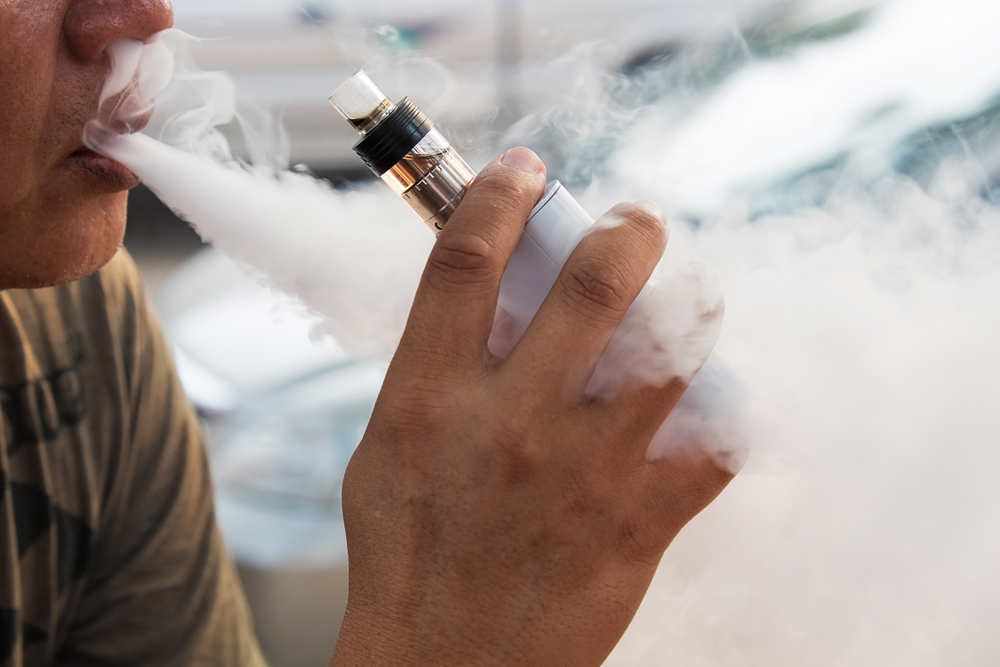Contents:
- Medical Video: Science Explains How Much Sleep You Need Depending on Your Age
- Risk of lack of sleep for health
- Obesity
- Type 2 diabetes mellitus
- Heart disease and hypertension
- Disorders mood
- Decreased immune function
- Reduced skin health
- How do you replace the lack of sleep?
Medical Video: Science Explains How Much Sleep You Need Depending on Your Age
You must have felt sleep deprivation. Sleep only for a few hours because you have to stay up late doing work assignments, office assignments, or other reasons. The next day, you will feel sleepy all day, feel weak, lack focus, lack enthusiasm, or mood You become bad so you get angry easily. Many people do not realize that it all happened because of lack of sleep at night.
Not only influences the next day, lack of sleep also can affect health in the long run.
Risk of lack of sleep for health
Sleep deprivation is associated with chronic diseases, such as diabetes, high blood pressure, and heart disease. Several studies have shown an association between sleep habits and risk of disease.
Obesity
Lack of sleep can increase the risk of gaining weight. Research shows that people who sleep less than 6 hours per night have a higher Body Mass Index (BMI) and people who sleep 8 hours per night have the lowest BMI. BMI is a measuring instrument someone said to have a thin or fat body based on his height. The fatter the body, the higher the BMI it has.
Sleep deprivation is associated with increased hunger and appetite, causing weight gain and obesity. During sleep, the body produces hormones that help control appetite, energy metabolism and glucose processing. Sleep that is less makes the hormones and other hormones work.
Sleep deprivation is related to hormones that regulate appetite, which are lower levels of leptin (a hormone that stimulates satiety signals to the brain) and higher levels of grelin (a hormone that stimulates hunger signals to the brain). So, lack of sleep makes the body feel hungry, even if we have eaten.
Lack of sleep can also increase the production of the hormone cortisol or stress hormones and is also associated with increased insulin production. Insulin is a hormone that regulates glucose and fat storage. High insulin levels are associated with increased body weight, a risk factor for obesity.
Type 2 diabetes mellitus
Sleep deprivation is associated with the risk of type 2 diabetes mellitus. Research shows that sleep deprivation can increase the risk of type 2 diabetes mellitus because it affects the workings of glucose in the body. Research that did reduce sleep time in healthy people from 8 hours to just 4 hours per night showed that their body processes glucose longer than if they slept for 12 hours. During sleep, the body continues to process glucose to maintain blood sugar levels.
Heart disease and hypertension
Sleep deprivation can contribute to increased blood pressure. Research shows that just one night people who have hypertension (high blood pressure) lack of sleep, can cause their blood pressure to rise in the following days. This impact can develop into heart disease and stroke. People who already have hypertension should sleep at night in sufficient time so as not to aggravate the disease. Other studies have shown that sleeping too little (less than 5 hours) and sleeping too much (more than 9 hours) can increase the risk of coronary heart disease in women.
Disorders mood
A day you don't get enough sleep at night can cause you to be irritable and moody the next day. Long-term sleep problems, such as insomnia, are associated with depression, anxiety, and mental stress. Research conducted on 10,000 people showed that people with insomnia were five times more likely to become depressed than those who did not.
Another study reported that people who slept 4.5 hours per night showed feelings of being more stressed, sad, angry, and mentally exhausted. People who sleep 4 hours per night also show a decrease in optimism and socialization skills. It is also reported that all the consequences of this sleep deprivation can be overcome when the person returns to normal sleep duration.
Decreased immune function
When you are sick, you will usually be advised to sleep more. Sick people who sleep more are better able to fight infections than those who sleep less when sick. The body produces more immune cells to help fight infections when sick. The harder work of the body causes the body to fatigue so that sleep is needed for the body to produce energy again.
In addition, lack of sleep can also make your body vulnerable to disease. The body and system need rest time to replenish energy after being tired of doing a lot of activity all day. But if you don't give your body enough time to rest, your body can become weak and susceptible to disease.
Reduced skin health
Lack of sleep can cause skin to tighten, cause fine lines and dark circles under the eyes of many people. This happens because lack of sleep makes the body produce the hormone cortisol in excessive amounts and causes the body to break down collagen in the skin so that the content of collagen in the skin decreases. This is not good for skin health. Collagen is a protein that makes skin smooth and elastic.
How do you replace the lack of sleep?
The only way to get back your lost sleep is to get more sleep. You can replace your lack of sleep on holidays. Try to increase your night's sleep by an hour or more. All you have to do is sleep when you feel tired at night, and allow the body to wake up in the morning by itself. That way, you will get your normal sleep time slowly.
Reduce the habit of staying up at night if there is really nothing to do. In addition, try to reduce the consumption of caffeinated drinks. Caffeinated drinks may help you reduce drowsiness at night for several hours, but the negative impact can damage your sleep patterns in the long run.
READ ALSO
- 5 Tips to Prevent Wrinkles When Sleeping
- Sleep Is Better With Lights On or Off?
- How to Regulate a Healthy Sleep Cycle If You Don't Have Enough Time












